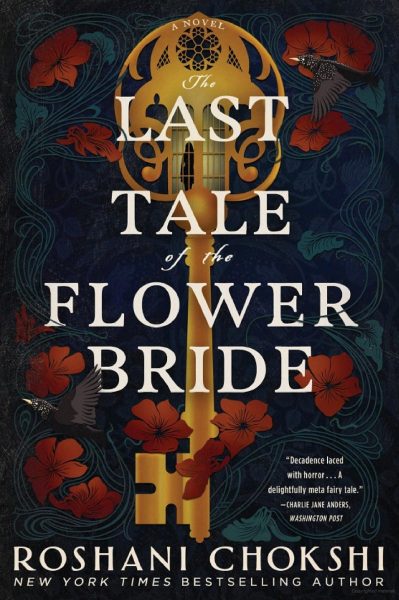When Praise Becomes Poison
They used to give us gold stars.
“Good jobs” on the top of graded papers.
Smiley faces that accompanied the A+’s and 100%’s and walked hand in hand with us out the classroom door.
Our parents taped them to the refrigerator, beamed at us when we presented them with a fresh new mark of ink on a page, whispered the scores proudly to the other parents at soccer fields and book club meetings.
Logically, I know that there was a time before this. When grades didn’t seem to matter so much, and my life’s success did not appear to hinge on that one B+ which might impact that one section on that one college application — you get what I’m saying. Logically, I know that the B+ doesn’t matter as much as it feels like it does. Logically, I know that this sense of failure, of being unmoored, adrift, without anchor is irrational. But it doesn’t feel that way. So how was it that this came to be?
The answer, in reality, is simple enough: we made it that way.
Jessica Lahey, author of the acclaimed novel “The Gift of Failure,” is quick to call out modern parents for their overprotectiveness — to the detriment of their children’s success. With the knowledge of scientists, psychologists, and good old common sense by her side, Lahey guides parents on a journey towards more encouraging, more effective, more emboldened nurturing.
But the part that most stood out to me in all of its alarming, disturbing truth was something that many would think unassuming, innocent, and decidedly harmless: praise. What Lahey argues is just the opposite. That the praise American parents (and adults in general) so often give is harmful and indeed destructive. The middle school teacher and mother of two criticizes Americans for their flippant words. With comments like “Great job! You are so smart!” or “What a talented girl (or boy!) you are,” they pat their children on the head, pat themselves on the back for a job well done in raising them, and move on, never thinking better of it. After all, who doesn’t like being praised? Aren’t we doing our children a favor by praising them? Aren’t we motivating them to be better? Encouraging them towards future success?
If you thought the answer was yes, think again. Contrary to what we learned from the sticks and stones thrown on the rugged battlefields of childhood playgrounds, words do hurt. And when it comes to praise, the damage has the potential to be irreparable. These thoughtless attempts at encouragement degrade where they are meant to develop, diminish where they are meant to advance, and without properly addressing them, will continue to wreak havoc — until it’s too late.
Praising kids for their gifts forces them to define themselves by these characteristics and shackles their sense of self-worth. When we say things like “you are so smart,” “you are talented,” or any one of a hundred variations of intelligence, we praise the person, not the process. Sure, it may feel good to be called smart or talented, but where does the focus really lie? Not on the hard work that someone has put into that 1000-word essay. Not on the triumphant success after a dozen failed math problems. No, instead, words like “talented, gifted, and prodigy” (which Americans are, unfortunately, prone to using) sidestep the learning process entirely and praise characteristics, inherent qualities.
Praise such as this teaches children that we value them for these traits — intelligence, talent, you name it — not their dedication or hard work. The label and the person become inextricable. You are either smart or you’re not, you’re a brain-iac or you’re not, a prodigy or you’re not. And for kids who have spent their childhoods being praised for these things and these things alone, the labels may as well be the centers of their self-worth; they have never known to identify themselves any other way.
This mentality in and of itself discourages children from risk taking and, by proxy, inhibits their ability to grow and achieve success. By tying self-value to characteristics, children may be less likely to take risks, for fear of losing the things they have been told give them value.
The kid who has been told their whole life that they have been good at math may not try a new way to solve an algebra problem. He knows that the strategy he has been using for years gets him to the right answer. And even if there is a chance that a new strategy might work better, there is also a chance that it won’t work at all. And if it fails? Then what? Disappointment. Disapproval. Disbelief. So, why try new things at all if you can take the easy way out and preserve your title as a “smart kid”? Why do harder things and risk failure when you can do the bare minimum? And not disappoint anyone in the process?
The answer, to kids who have been praised ineffectively at least, is that you shouldn’t. Because when you have been taught that your intelligence matters more than your learning experience, exploration becomes a risk — and one that many find themselves unwilling to take.
The alternative, however, is much more frightening. If you never take risks or leaps of faith, never leave the boundaries of expectations, never face and overcome the difficulties of failure, there is no learning to be had. You never give yourself a chance to step outside of your comfort zone or to confront problems that need to be solved. And ultimately? If you never make mistakes, never grow from them, the learning curve doesn’t just stay static — it becomes nonexistent.
But this inhibition of learning is not confined to childhood. Ineffective praise conditions kids to seek out approval, to pursue it, to depend on it — both in the classroom and beyond. Receiving praise activates a reward circuit in the brain, triggering the release of dopamine, a chemical known for creating feelings of pleasure. Many people that have grown up under an intense amount of praise continue chasing affirmation into adulthood, if only for the short-term gratification after receiving it. Put these individuals in the context of alcoholism or drug use and they might be called addicts. Society has dubbed them “praise junkies.”
And “praise junkies” don’t just crave affirmation — they depend on it. Because they have always been congratulated by those around them, they look to others to improve their confidence, for confirmation when making decisions, and their self-sufficiency suffers because of it. Not to say that your family and friends should never be there to encourage you; having a support system is important to a healthy lifestyle, but it’s equally important to develop self-assurance so that you are capable of forming your own opinions, making sure that you live life according to your own interests, not other people’s.
It’s time to open our eyes to our wrongdoings. If we fail to recognize where we went wrong, there is no end to this problem. Kids with “former gifted kid burnout” will become adults with “former gifted kid burnout” who may unconsciously impose their former (or, worse, prevailing) habits on their kids. And so the vicious cycle continues.
A more openminded perspective is needed. One that doesn’t put all the value in learning on things like grades. One that focuses on the value of mistakes and learning experiences as well. One that lets us put down our grading pencils for a moment and leave our anxiety over intelligence and talent at the classroom door.
Because without it, we end up right back at square one, clutching gold stars to our chest and hoarding A+’s in our hearts.









Caylee Hansel • Dec 15, 2022 at 10:37 am
I wouldn’t be surprised if more than half of students deal with this. It’s a horrible, fragile, and exhausting way to live. It applies to any interest area too. Really good at an instrument? Really good at Art? You have an amazing style? Then if you want to relax, take a break, wear a sweatshirt, you can’t. Because then you would have nothing. That’s why mistakes are so heartbreaking if you have that mindset. It’s very be all, or end all, black and white, thinking.